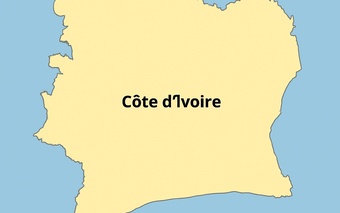By Peter Agbesi Adivor
Côte d’Ivoire will hold its presidential election on 25
October 2025, a contest set to shape the country’s political and economic
trajectory. The vote will be conducted under a two-round system, with a runoff
if no candidate secures an outright majority. Results are expected within days,
with the Constitutional Council making the final declaration.
Context and Political Landscape
President Alassane Ouattara, in power since 2011, has
confirmed a bid for a fourth term after a constitutional reset of term limits.
Backed by strong economic growth, his candidacy has also revived concerns over
democratic backsliding in the West African country. Opposition ranks have been
weakened by the exclusion of key figures, including former president Laurent
Gbagbo and ex-Credit Suisse chief Tidjane Thiam, whose disqualifications
triggered protests in Abidjan and calls for a more inclusive process.
Past polls and recurring constitutional disputes have also fostered
a
tense political climate in a country still scarred by post-electoral
violence including the 2010–11 crisis that claimed over 3,000 lives, and unrest
in 2020 triggered by a contested third term for Outarra.
Presidential Candidates
The ballot remains crowded, but the field is dominated by incumbent
Alassane Ouattara, former first lady Simone Gbagbo, and long-time opposition
figure Pascal Affi N’Guessan. Analysts say the exclusions of Laurent Gbagbo and
Thiam have reshaped the race, limiting the potential for a truly competitive
challenge. The controversy over candidacies has reinforced perceptions of an
election tilted in favor of the incumbent.
Key Issues for Voters
Despite an economy projected to grow at 6.3% this year, many
Ivorians worry about youth unemployment, inequality, corruption, and climate
risks to cocoa production, the backbone of national exports. Beyond economics,
reconciliation remains incomplete as divisions from the 2010–11 post-electoral
crisis still lingers, and the credibility of this election will be seen as a
test of Côte d’Ivoire’s fragile democratic stability.
Who Is Likely to Win?
Most observers consider Ouattara
the clear frontrunner, citing his incumbency advantage, economic record,
and fragmented opposition. Yet analysts caution that a lopsided race may deepen
questions of legitimacy and spark unrest, particularly in opposition
strongholds.
Why It Matters
As one of West Africa’s largest economies and a bellwether in West Africa, Côte d’Ivoire’s trajectory carries regional weight. A peaceful, credible vote would reinforce democratic norms across the sub-region, while a disputed outcome could destabilize a nation still scarred by past electoral violence.
Africanelections.org


 Take Voters' Compass
Take Voters' Compass